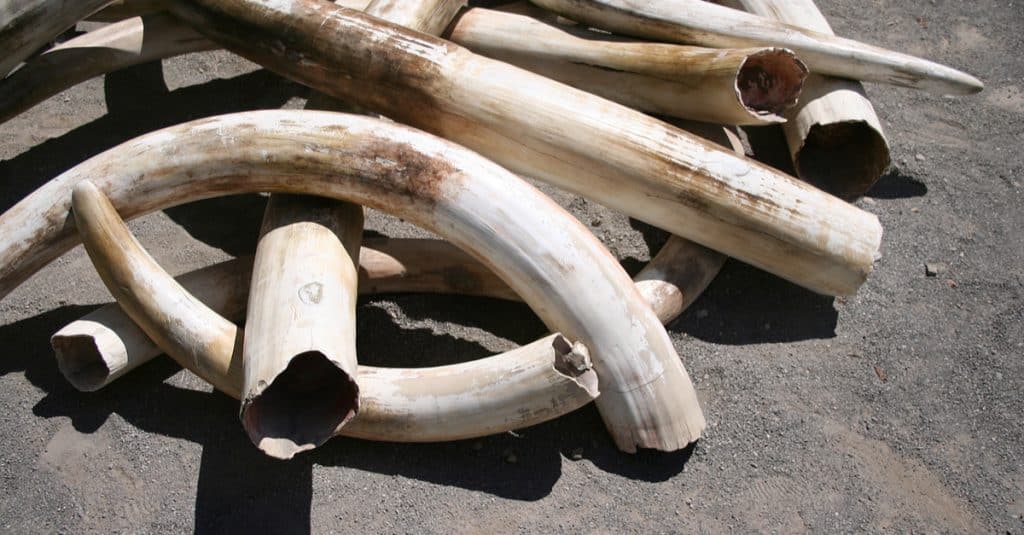Nearly three months after the arrest of an alleged ivory trafficker with 12 elephant tusks in Fougamou in the south of Gabon, the agents of the judicial investigation police of Mouila, those of the administration of Water and Forests with the support of the organization Conservation Justice have just arrested again a lady, who according to the circumstances would be involved in ivory trafficking.
Indeed, the elements of the joint team deployed an intervention mechanism following a report given by a team on duty near a place where a transaction was to be held on 2 November 2022. When they arrived at the scene, the mixed team immediately proceeded to arrest the suspect, who intended to deceive the investigators with a bag of cassava cuttings. But her ruse did not work, and the investigators eventually discovered another bag of rice, which contained 4 ivory tusks for sale.
According to information gathered from a source close to the case, the ivories would come from a village near Ikobe, a rural locality in south-west Gabon. The Ikobe area, which is landlocked and close to the Waka National Park, is home to one of the last remaining indigenous or pygmy peoples in Gabon, the Babongo. With unique forest skills, whether in conservation or, conversely, wildlife trafficking because of their daily proximity to wildlife, they can be the armed arms of traffickers or informants for wildlife law enforcement officers.
The arrested suspect will be transferred to the special court of Libreville where she faces a sentence of up to ten years in prison. Considered the last great bastion of forest elephants in the world, Gabon is home to an estimated 95,000 forest elephants, according to official figures. “Faced with the threats to this wealth of wildlife, it is necessary to implement an inclusive approach to the conservation of wildlife and endangered species,” says the non-governmental organisation (NGO) Conservation Justice.
Boris Ngounou
